Inequity in politics of presidential pardon
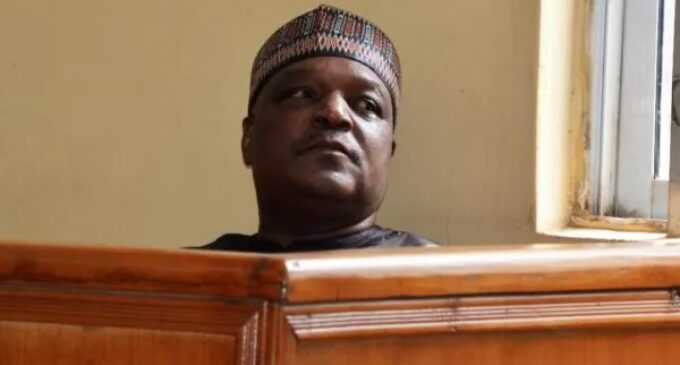
The National Council of States (NCS) has during its last meeting held on Thursday, April 14, 2022, approved President Muhamadu Buhari’s pardon of 159 prisoners, two of whom are Joshua Dariye and Jolly Nyame — ex-governors of Plateau and Taraba states, respectively.
While Dariye was found guilty and jailed for stealing N1.16 billion, Nyame has a tag of N1.6 billion as being stolen by him and therefore sent to prison.
Although both have been in the penitentiary, as they should, their proposed pardon may be owed to the general belief that their imprisonment, to a large extent, might have political, ethnic, and religious undertones.
We will return to that aspect later in the course of this intervention.
But first, it is important to state that a presidential pardon is in order and universal, as it has almost taken the form of a ritual since presidents all over the world make it a sort of fetish by granting state pardons to convicts as part of activities marking their exit from power.
The experience in the United States of America (USA) where the last presidential pardon was very controversial attests to the contentious nature of the exercise of the prerogative of mercy. Since there are no set parameters for who qualifies, it always represents different strokes for different folks.
Perhaps, referencing a few instances by past presidents in the USA from where Nigeria took the franchise for the presidential system of governance would serve as a veritable compass to the type of emotions that pardon of convicts has elicited in another clime.
From President Donald Trump, who apart from pardoning friends and family, included plans to give himself pardon in anticipation of indictment and conviction on his alleged ignoble role in the 2021 presidential election and January 6 invasion of the Capitol by his supporters, to Richard Nixon who pardoned his predecessor in office, President Gerald Ford for his crimes related to watergate scandal without even undergoing trial.
According to reporting by Time Magazine correspondent, Jack Brewster, Marc Reich with 65 criminal charges including tax invasion, racketeering, and illegal oil deals with Iran, was also pardoned by President Bill Clinton before he exited office as president.
Even presidents George W. Bush and George H. Bush, during their respective presidencies, granted their acolytes and associates presidential pardons that generated controversies.
While George W. Bush had the 30 months prison term of Scooter Libby, chief of staff to the former Vice President commuted for obstruction of justice and providing false statements to the F.B.I, George H. Bush did not allow the opportunity to exercise the power of presidential pardon to go unutilized, as he had also pardoned former Secretary of State, Casper Weinberger for the crime of lying under oath.
The list is inexhaustible and it even extends to the Uk and Europe as a whole. But the point has been sufficiently made that although presidential pardon is a settled doctrine worldwide, it has remained a highly combustible matter, and Nigeria can not be an exception.
As readers would have noticed, most, if not all the presidential pardons granted by US presidents highlighted, were to individuals who breached the constitution in terms of flouting policies and principles which is more or less perjury.
In contrast with the situation in the US, the most prominent people recently considered for a presidential pardon in Nigeria-Dariye and Nyame were convicted for corruption which entails embezzlement of public funds or violation of government treasury.
That is one of the factors that have gaslighted the latest presidential pardon in Nigeria. The second reason is that there is inequity in not extending the pardon to convicts of petty crimes from the tribe of the hoi poloi.
And that is the tribe of Nigerians that form the majority of those in jail.
Human rights activist and lawyer, Femi Falana made that contention in a speech during the commemoration of one year of the passage of Yinka Odumakin, a formidable human rights activist.
“All petty thieves in our prisons should be released. Under Section 17 of the 1999 Constitution, there shall be equality and equal rights for all citizens.
“Section 42 of the Constitution says there shall be no discrimination on the basis of class and gender, so you cannot take out a few people on the basis that they belong to a category or section of the society.
“I can assure you that if the government did not release others, I am going to call on lawyers whose clients are left in custody to come to court and challenge the discriminatory treatment of their clients.
He reminded Nigerians that: “Just two weeks ago, a Nigerian was jailed for stealing N1,000 in Abuja; the accused pleaded with the judge that he had no food but the judge jailed him for six months.
“When we are talking of justice and fair play, if you want to pardon some set of people, then you must also extend presidential pardon to petty thieves in the prisons.
“This is because if the big thieves are being asked to go, then they must also extend the facility to other Nigerians.”
In the light of the argument above, equity is the main bone of contention for the human rights advocate. The cherry side of the current pardon is that it covers all the junior officers that were involved in the infamous Gideon Okhar-led military coup d’etat of April 22, 1990. So after about three decades and two years, reprieve has come the way of the low cadre officers who were not in the real sense of it coupists but were probably only obeying the command of their bosses that staged the putsch.
By and large, the state pardon of the pair of Dariye and Nyame is not just a matter of not passing the test when the action is passed through the crucible of equity, but it is also morally repugnant if what is good for the geese is not good for the gander as it is not being extended to Nigerians who committed petty crimes.
On top of that, a legal angle has also been identified and added to the controversy by Dr Abubakar Alkali, who is the convener of the Movement for New Nigeria (MNN).
In a recent media statement, he is making the case that the pardon outsourced by the outgoing president Buhari to the NCS is in breach of the constitution of the federal republic of Nigeria.
“The pardon granted to convicted corrupt former governors Jolly Nyame and Joshua Dariye by the National Council of states is UNCONSTITUTIONAL as the prerogative of mercy in the third schedule, part 1 section 6(ii) of the constitution 1999 (as altered) can only be exercised in respect of federal offences. Dariye’s and Nyame’s are state offences.”
Citing legal precedents, he argued that “The Supreme Court ruling on Dr. Joseph Nwobika SAN vs Federal Republic of Nigeria has clearly spelled out that corruption cases involving states governors are state offences. In this vein, the NCS cannot pardon Dariye and Nyame because the prerogative of mercy bestowed on the national council of states (NCS) can only be applied on federal offences.”
Dr Alkali further made the case that: “Since Dariye’s and Nyame’s corruption convictions are state offences, the NCS has no powers to exercise the prerogative of mercy on their cases. The prerogative of mercy is usually exercised in cases where the convict or suspect has spent many years in detention without trial which exceeds the likely jail term he could face upon conviction.”
He concluded his reprimand of the presidency with the following declaration: “Clearly the action by the NCS is unconstitutional because the prerogative of mercy as enshrined in section 6(ii) third schedule of the 1999 constitution cannot be applied in these cases of extreme advance corruption. This relevant section which empowers the national council of states(NCS) to exercise the prerogative of mercy cannot be a blank cheque to upturn the judgement of the apex (Supreme Court) which took more than a year to run and convict Jolly Nyame and Joshua Dariye accordingly. Indeed, the corruption cases of Jolly and Joshua are STATE offences and cannot be pardoned by federal fiat.”
Now, it would be clear to all that I have leaned heavily on Dr Alkali’s narrative because it is based on legal precedents which he cited elaborately. More so with the unconstitutionality of pardoning state offenders by the NCS, whose authorities cover only federal crimes and which by all indications is currently the case with Dariye and Nyame convictions.
Invariably, the validity of the proposed pardon would have to be tested in the law courts before it can be said to have earned the imprimatur of constitutionality, considered equitable, and accepted as justifiable.
In the event that the authorities go ahead with the pardon, both Femi Falana and Abubakar Alkali, on different grounds and for dissimilar reasons, have vowed to litigate the decision.
For Falana, it is because the pardon excludes the convicts in the lower rung of society, and for Alkali, the reason he is venting his spleen is owed to the contravention of Nigeria’s constitution and injustice to the citizens of the states against whom both Dariye and Nyame committed the crimes.
For the rest of the Nigerians who are aghast, it is about the fact that the conviction and jailing of the duo involve their engagement in financial fraud, for which the incumbent government claims it has zero tolerance. But which it appears to have acquiesced with, if and when it goes ahead with the pardon.
But taking into consideration, the circumstances under which the ex-governors got convicted and jailed, which some Nigerians believe are influenced by their political, and religious leanings, and underscored by the general belief that politicians who cross carpet from the PDP to the APC automatically ‘change’ their cloak from sinners to saints,(as reportedly decreed by former chairman of the ruling party, Adams Oshiomole) it is not unexpected that politics would play a significant role in unshackling the duo through state pardon. It is also being speculated that not being from the tribe of the ruling class or of the same faith as them, inhibited their chances of evading the law like their northern contemporaries ‘ governors of the class of 1999’ who also have corruption cases pending in courts, but are not in jail. That is even though the sums of N1.6b and N1.16b embezzled by the jailed governors, Dariye and Nyame pale in comparison to the multiple billions of naira allegedly stolen by ex-governors and other politicians still strutting around and angling to be handed the leadership of our country when Buhari exits Aso Rock villa in 2023.
In terms of party affiliation, it may not be a mere coincidence that Dariye a former governor and senator originally from the PDP stable is currently a member of the ruling APC to which he has cross-carpeted as a ploy to gain a soft landing. Similarly, Nyame who became governor of Taraba state through the PDP platform has also crossed the aisle by becoming a member of ACN which is a legacy component of the APC also in a bid to gain leniency.
It is not a mere happenstance that the former National Security Adviser (NSA), Col Sambo Dasuki, rtd, who did not cross carpet to the ruling party has served a long period of incarceration under the watch of the current administration, ostensibly for the misappropriation of $2.1 billion budgeted for fighting terrorism.
Although he is no longer in incarceration, like Dariye and Nyame, he too deserves an apology from the authorities, and his prison record should be quashed because he was not actually convicted, but was jailed perhaps because of his role in the previous administration which created some existential threats to the victory of the current ruling party, APC over PDP at the polls in 2015, hence the APC had an ax to grind with him.
Adjunct to the case being made for the presidency to be equitable in its pardon of convicts and the need to be compliant with the provisions in the constitution of the federal republic of Nigeria in doing so; it may be recalled that a member of the House of Representatives, Denis Idahosa, had in September 2021 also drawn attention to the alarming number of Nigerians illegally detained or jailed in other jurisdictions without proper or inadequate legal representation. Take the case of the young Nigerian lady(student ) Zainab Aliyu convicted and condemned to death in 2018 for trafficking in narcotics in Saudi Arabia. Commendably, as Nigerian authorities convinced me that she was innocent of the crime, every legal and diplomatic tool available to our country was deployed to save the innocent young lady’s life.
In the same manner that the lady was practically rescued from the valley of death, the concerned and very patriotic lawmaker, ldahosa believes that the federal government needs to leverage diplomatic platforms in assisting Nigerians wrongly convicted and jailed in foreign jurisdictions/countries.
Idahosa’s concern is based on a 2019 survey report by the Legal Defence and Assistance Project (LEPAD), which revealed that about 16,500 Nigerians are in prisons outside Nigeria that were convicted either without legal representation, perverted and concocted evidence that remains unsubstantiated.
In that regard, the Nigerian government should also leverage diplomatic channels to seek the quashing of the conviction in the United Kingdom (UK) of the likes of chief James lbori, ex-governor of Delta state that was jailed in that country without verifiable evidence. With his back literally pushed against the wall, lbori settled for a plea bargain, UK style. It is believed that the prosecutors obtained the deal after much intimidation and coercion involving the torment of his close family members including his wife, only sister, and mother of his child that were shackled in a manner similar to the tactics employed by mobs-like Italian mafia to compel victims to do their bidding.
In the event that the Nigerian government is unable to cause the UK authorities to pay him reparations for wrongfully jailing him which appears to be the fear of the UK judicial system that failed to find any laundered funds in Ibori’s custody or bank accounts abroad, as it had alleged, his jail records should be erased or quashed. That is simply because the crime was phantom since the Nigerian government — federal or state never declared any money missing, how much more trace it to Ibori.
If there is any justice in the world, the fact that British prosecutors could not prove the case beyond reasonable doubts against Ibori is a redeeming factor and enough reason to declare the trial null and void, as it is actually a political witch hunt that went too far.
In my reckoning, and presumably in the optics of men and women of goodwill all over the world, justice denied is not only grave injustice but a slur on the British judicial system and a burden on the conscience of mankind.
Taken all together, the point being made is that the National Council of States, NCS should guide and encourage president Buhari to have a broader perspective when exercising the prerogative of mercy constitutionally granted to him, by focusing his gaze beyond the privileged members of the political class to all other classes of Nigerians deserving of clemency.
Magnus Onyibe, an entrepreneur, public policy analyst, author, development strategist, alumnus of Fletcher School of Law and Diplomacy, Tufts University, Massachusetts, USA and a former commissioner in Delta state government, sent this piece from Lagos


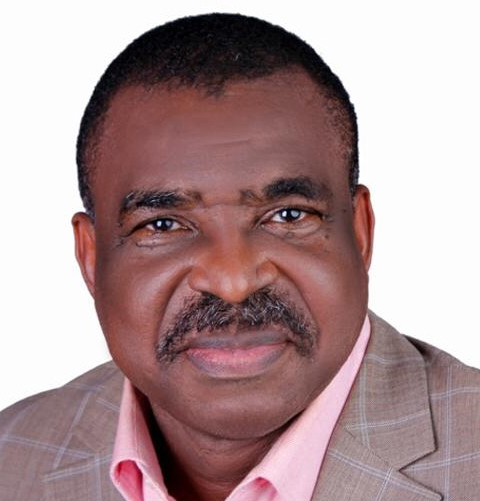




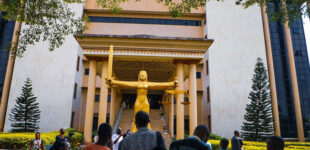

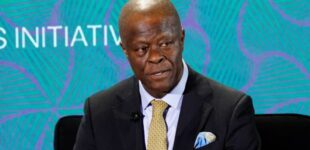


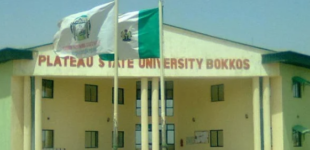




There are no comments at the moment, do you want to add one?
Write a comment